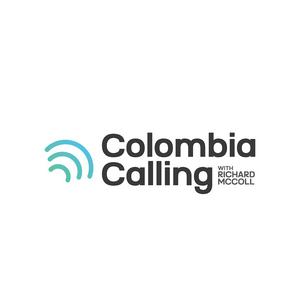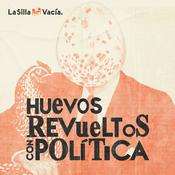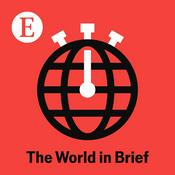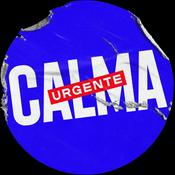Colombia Calling - The English Voice in Colombia
Richard McColl

Último episodio
131 episodios
600: Episode 600 of the Colombia Calling podcast with Emily Hart and Richard McColl
03/2/2026 | 1 h 19 minIn this celebratory 600th episode of the Colombia Calling podcast, hosts Richard McColl and Emily Hart reflect on the evolution of their podcast, the significant political changes in Colombia, and the lessons learned from living in the country. They discuss the impact of a left-wing president, the changing landscape of podcasting, and offer advice for newcomers to Colombia. The conversation also touches on common misconceptions about the country and predictions for its future. In this engaging conversation, Emily Hart and Richard McColl explore various themes surrounding Colombia, including cultural representation in media, personal anecdotes, travel advice, and the political landscape. They discuss the misconceptions about Colombia, the challenges faced by foreigners, and the importance of understanding the local context. The conversation also delves into the security concerns during elections, the accuracy of polling, and the ambitious political vision of President Petro. Throughout, they share personal stories and reflections on their experiences in Colombia, making for a rich and insightful dialogue. There are comments added in from long-term transplants to Colombia such as author Barry Max Wills and journalist Mat DiSalvo. ENJOY! "600 is a crazy number." And support us www.patreon.com/colombiacalling- In this episode of the Colombia Calling podcast, host Richard McColl speaks with Eric Stone, a journalist and photographer, about the vibrant graffiti scene in Bogotá. They explore the evolution of graffiti as an art form, its political significance, and the cultural exchange between Bogotá and Clarksdale, Mississippi. Eric shares personal anecdotes from his experiences with local artists (Toxicomano, Guache, Leela, DJLu, Erre, Stickfish amongst others) and discusses his upcoming book project that aims to capture the essence of Bogotá through its graffiti. The conversation delves into the freedom of expression found in Bogotá, the divide in the city's graffiti scene, and the role of art in social commentary.
The Colombia Briefing is reported by Emily Hart. - In this episode of the Colombia Calling podcast, host Richard McColl interviews Jessica M. Lepler, Associate Professor of History at the University of New Hampshire, about her new book 'Canal Dreamers.' The conversation delves into the historical attempts to build a canal across Lake Nicaragua in the 1820s, the geopolitical interests of foreign investors, and the complexities of Central American history. Lepler shares insights from her extensive research, including the role of families in uncovering historical documents, the impact of the 1825 financial crisis, and the perspectives of indigenous nations like the Miskitu and Rama. The discussion also touches on the fascinating adaptability of sharks in Lake Nicaragua and the importance of integrating animal history into broader historical narratives.
The Colombia Briefing is reported by Emily Hart: https://harte.substack.com 597: My Mother Was Raised by Monkeys in Colombia: A conversation with musician Vanessa Forero
13/1/2026 | 1 h 5 minIn this episode of the Colombia Calling podcast, host Richard McColl speaks with musician Vanessa Forero about her unique journey as a singer-songwriter, her family's history, and the impact of the music industry on artists. Vanessa shares her experiences of accidentally becoming a singer, her diverse musical influences, and the challenges she faced in the industry. They also discuss her mother's incredible story of survival - raised by monkeys in Colombia -, the process of capturing family memories, and the search for identity and family connections. The conversation highlights the emotional resilience required to navigate both personal and professional challenges, as well as the importance of storytelling in music and life.
The Colombia Briefing is reported by Emily Hart: https://harte.substack.com- In this episode of the Colombia Calling podcast, host Richard McColl speaks with author Natascha Scott-Stokes about her journey from Germany to the UK and eventually to Chile. They discuss her experiences living in Guatemala during a time of conflict, her transition to life in Chile, and her reflections on the country's culture, landscape, and social issues. Natascha shares insights from her book, 'Tales from the Sharp End: A Portrait of Chile,' exploring themes of inequality, personal history, and the impact of climate change. The conversation delves into the complexities of identity and belonging as an immigrant, as well as the challenges and joys of raising a family in a foreign land.
Read her book: https://a.co/d/dVI9QOV
And the Colombia Briefing is reported by Emily Hart.
Más podcasts de Noticias
Podcasts a la moda de Noticias
Acerca de Colombia Calling - The English Voice in Colombia
Colombia Calling is your first stop for everything you ever wanted to know about Colombia. Colombia Calling is hosted by Anglo Canadian transplant to Colombia, Richard McColl and the Colombia Briefing is reported by journalist Emily Hart. Tune in for politics, news, reviews, travel and culture stories, all related to Colombia.
Sitio web del podcastEscucha Colombia Calling - The English Voice in Colombia, A Fondo Con María Jimena Duzán y muchos más podcasts de todo el mundo con la aplicación de radio.net

Descarga la app gratuita: radio.net
- Añadir radios y podcasts a favoritos
- Transmisión por Wi-Fi y Bluetooth
- Carplay & Android Auto compatible
- Muchas otras funciones de la app
Descarga la app gratuita: radio.net
- Añadir radios y podcasts a favoritos
- Transmisión por Wi-Fi y Bluetooth
- Carplay & Android Auto compatible
- Muchas otras funciones de la app


Colombia Calling - The English Voice in Colombia
Escanea el código,
Descarga la app,
Escucha.
Descarga la app,
Escucha.






































